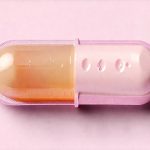Bloating is an incredibly common discomfort that many people experience, often leading to feelings of fullness, pressure, and even visible abdominal distension. It can be triggered by numerous factors – dietary choices, stress levels, hormonal fluctuations, or underlying digestive issues – making it a frustrating condition to manage. While quick fixes like over-the-counter remedies exist, focusing on preventative measures is far more effective in the long run. A surprisingly powerful and often overlooked element of bloating prevention lies within something as fundamental as proper hydration.
This article will explore the complex relationship between hydration and bloating, debunking common myths and providing practical insights into how adequate water intake can positively impact your digestive system and overall comfort. Understanding why dehydration can contribute to bloating, and conversely, how sufficient hydration helps alleviate it, is key to adopting sustainable habits for a happier, healthier gut.
The Dehydration-Bloating Connection
Many people intuitively reduce their water intake when feeling bloated, fearing it will exacerbate the issue. This is often counterproductive. In reality, dehydration can be a significant cause of bloating. When your body lacks sufficient fluids, it attempts to compensate by retaining water, leading to swelling and discomfort in various areas, including the abdomen. Think of it as the body going into “conservation mode.”
Furthermore, inadequate hydration directly impacts digestive function. Water is crucial for moving food through the digestive tract efficiently. Without enough water, stool becomes harder and more difficult to pass, potentially leading to constipation – a major contributor to bloating.
The Benefits of Optimal Hydration
Proper hydration isn’t simply about drinking eight glasses of water a day (though that’s a good starting point). It’s about maintaining fluid balance within the body. This supports numerous bodily functions beyond digestion, including nutrient absorption, waste removal, and temperature regulation. When your digestive system is functioning optimally due to adequate hydration, it’s less likely to become overwhelmed and contribute to bloating symptoms.
How Water Aids Digestion
Water plays a vital role in breaking down food during the digestive process. It helps dissolve nutrients, making them more accessible for absorption by the intestines. Additionally, water softens stool, promoting regular bowel movements and preventing constipation – arguably one of the biggest triggers for bloating. A well-hydrated colon functions more efficiently, reducing the time waste spends lingering within your system.
Electrolytes and Fluid Balance
Bloating isn’t always about the amount of water you drink; it’s also about maintaining a healthy electrolyte balance. Electrolytes – sodium, potassium, magnesium, and calcium – are essential for regulating fluid distribution in the body. Dehydration can disrupt this balance, leading to water retention and bloating. Consuming foods rich in electrolytes (like bananas, spinach, and yogurt) alongside adequate water intake helps maintain proper hydration and minimizes bloating associated with electrolyte imbalances.
Identifying Your Individual Hydration Needs
Determining your optimal daily water intake isn’t one-size-fits-all. Factors like activity level, climate, diet, and individual metabolism all play a role. While the “eight glasses” guideline is helpful, paying attention to your body’s signals is crucial. Signs of dehydration include thirst, dark urine, fatigue, and dizziness. Paying close attention to these cues allows you to adjust your fluid intake accordingly. Consider increasing water consumption during exercise or in hot weather, and be mindful of foods with high water content (like fruits and vegetables) which can contribute to overall hydration.
Ultimately, prioritizing consistent and adequate hydration is a powerful preventative measure against bloating. It’s not about drastically changing your lifestyle overnight; it’s about incorporating small, sustainable habits into your daily routine that support optimal digestive health and overall well-being. By understanding the connection between water intake and bloating, you can take proactive steps to minimize discomfort and enjoy a more comfortable and balanced life.


















